Furniture makers were once known as cabinetmakers and were responsible for designing and building all types of furniture. It was an essential trade in early British North America and was considered a successful business for those with woodworking skills.
Early cabinetmakers were also some of the first funeral undertakers, as they had the skills required to make a coffin. For many early undertakers, building caskets was a logical extension of their business and funeral undertaking was a second business rather than a primary profession. In more rural areas, if they had a horse and cart, they also provided transport of the deceased if it was needed.
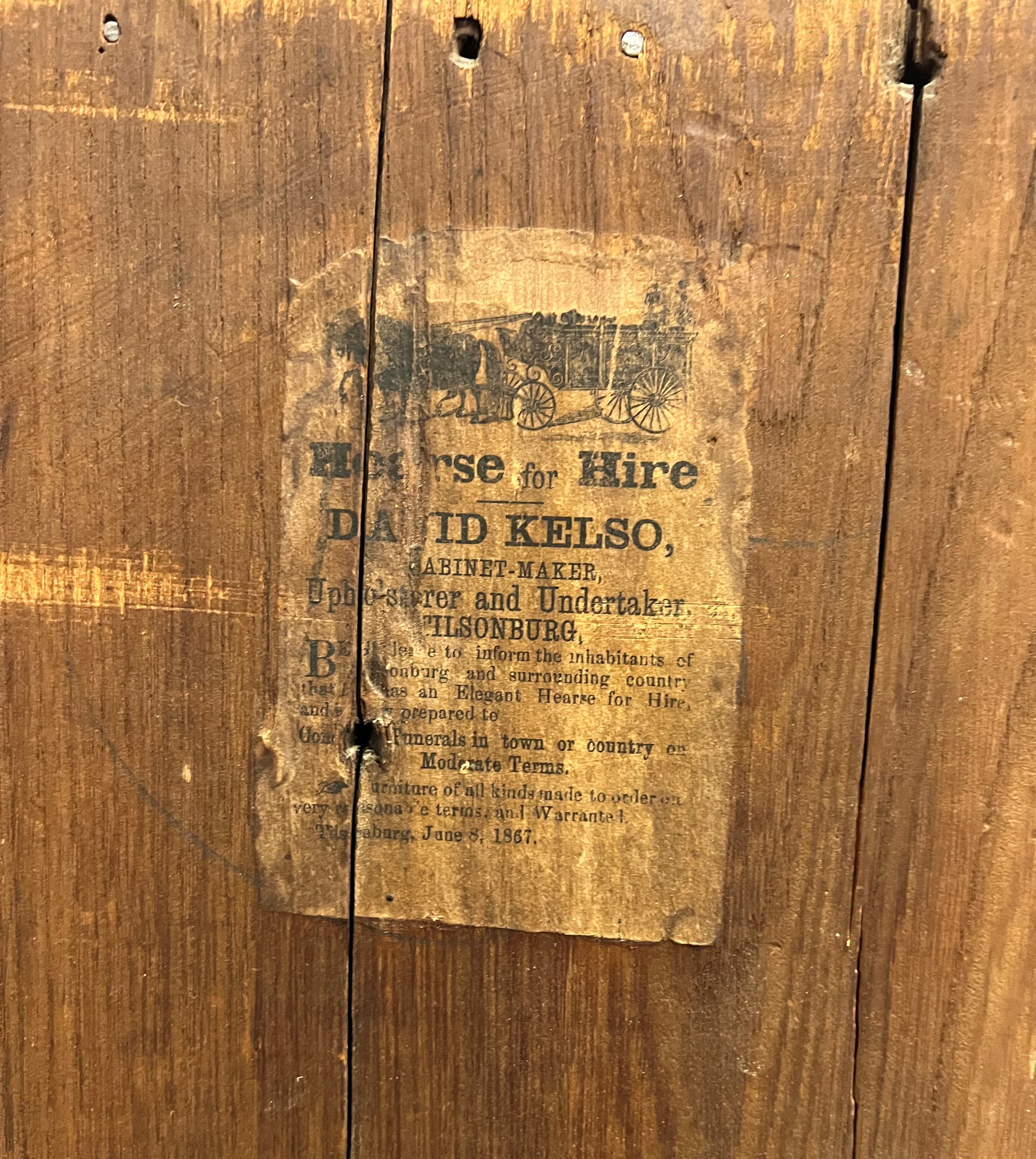 One of the earliest and successful cabinetmakers in Tillsonburg was David Kelso (born in Scotland, 1822), who is listed in the 1862-1863 Oxford County Directory as operating a cabinetmaking business in the community. By the 1870s, he had extended his business to include undertaking and, by the 1880s, he had also established himself as a furniture dealer with a two storey shop and residence located on Broadway. Kelso also extended his products to include metallic burial cases and caskets and maintained a hearse for funeral processions. His wife, Janet, was also an entrepreneur and worked as a dressmaker out of their home. David Kelso passed away December 1, 1895 and is buried in the Tillsonburg Cemetery.
One of the earliest and successful cabinetmakers in Tillsonburg was David Kelso (born in Scotland, 1822), who is listed in the 1862-1863 Oxford County Directory as operating a cabinetmaking business in the community. By the 1870s, he had extended his business to include undertaking and, by the 1880s, he had also established himself as a furniture dealer with a two storey shop and residence located on Broadway. Kelso also extended his products to include metallic burial cases and caskets and maintained a hearse for funeral processions. His wife, Janet, was also an entrepreneur and worked as a dressmaker out of their home. David Kelso passed away December 1, 1895 and is buried in the Tillsonburg Cemetery.
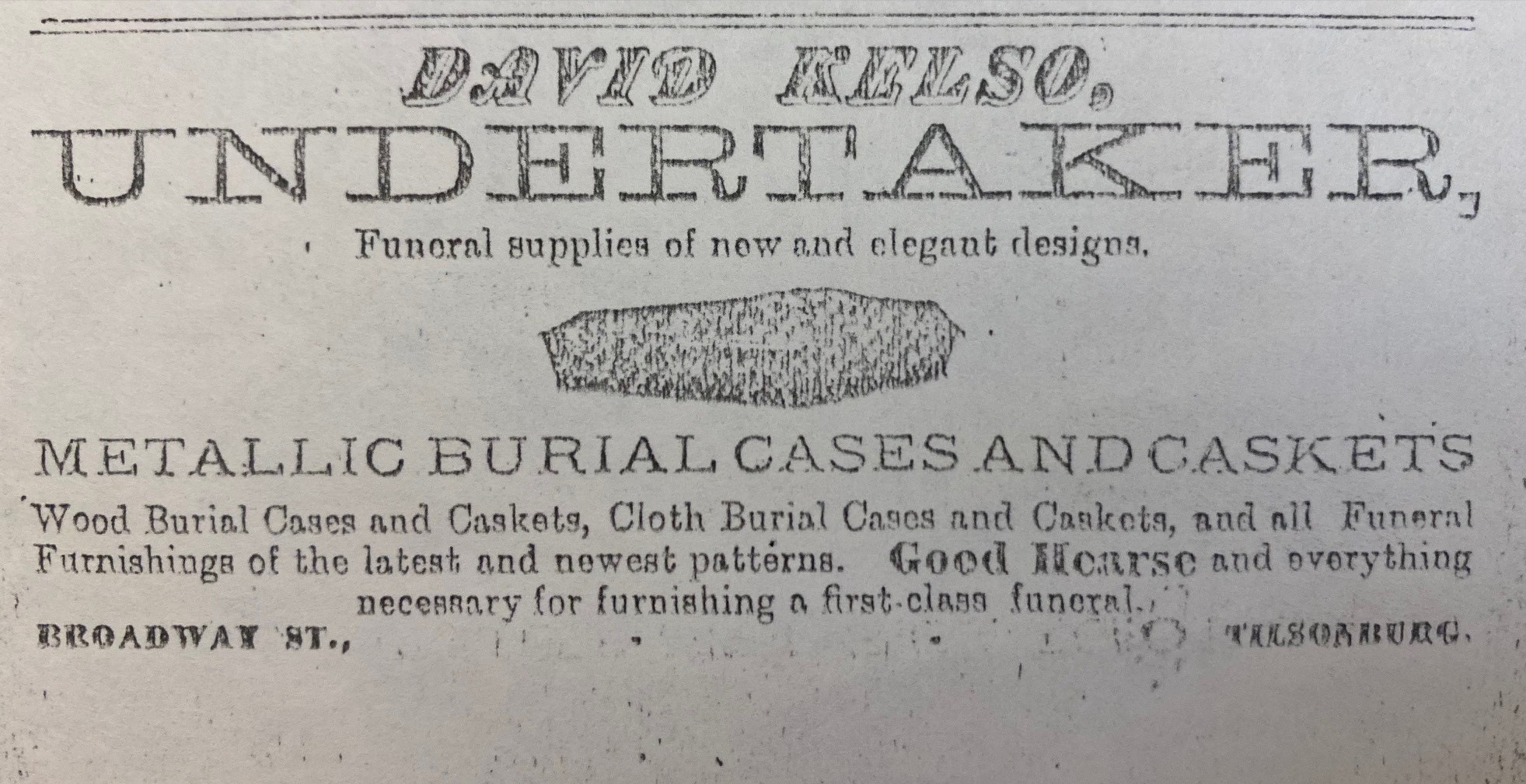
Advertisement for David Kelso, undertaker, from the 1881 directory
In 1877, brothers John Romaine Shepherd and George Thomas Shepherd, started a business as cabinetmakers and upholsters known under the name of Shepherd Brothers. The business remained operational until the turn of the century. Likewise, by 1881, S. Burdick W. Carpenter had established a business on Broadway opposite the market. Carpenter operated as a cabinetmaker and undertaker producing his own products as well as imported coffins and caskets. He also served as an agent of the Ontario Clans Burial Case Co. and, according to his advertisements, attended to funerals day or night, free of charge.
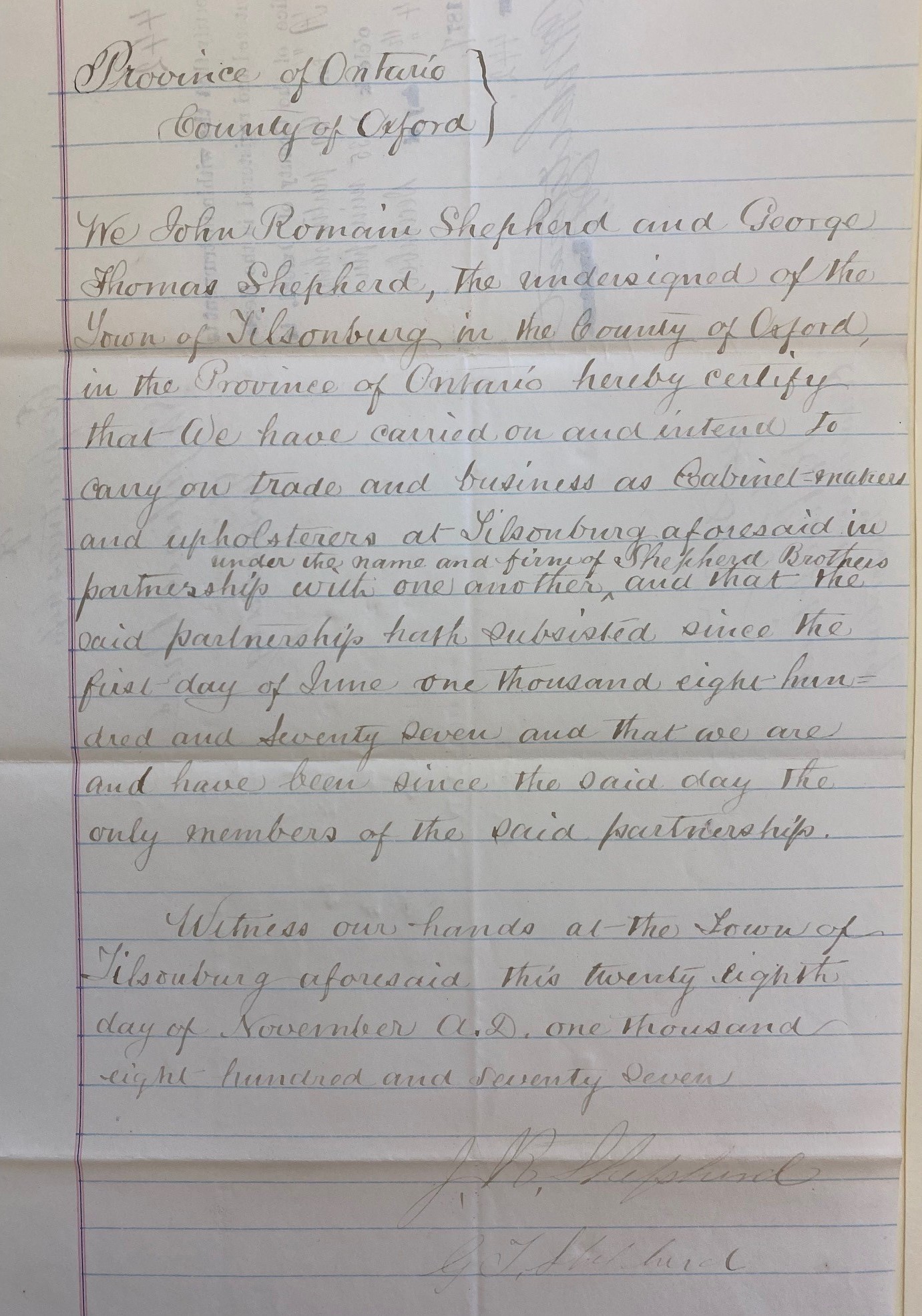
A declaration of partnership between John Romaine Shepherd and George Thomas Shepherd, 1877
Stanton B.W. Carpenter was born in Herkimer County, New York and arrived in Tillsonburg in April 1855. He worked for E.D. Tillson for over twenty one years before opening his furniture and undertaking business. According to his obituary, his reputation as an undertaker was of the very highest order and “for many years [he] had the largest business of the kind in this part of the province”. He passed away February 7, 1902.
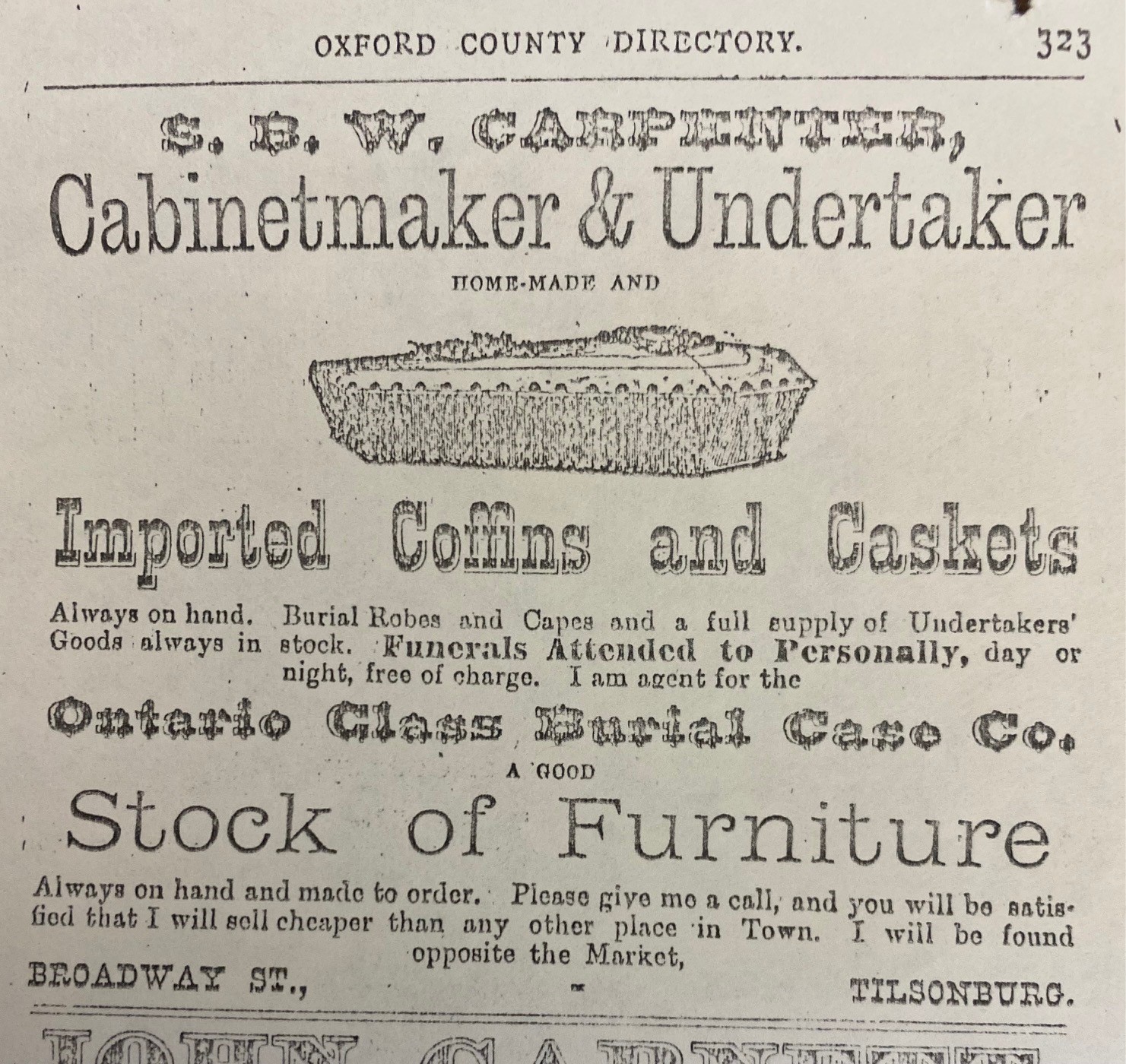
Advertisement for S.B.W. Carpenter, undertaker and cabinetmaker, from the 1881 directory.
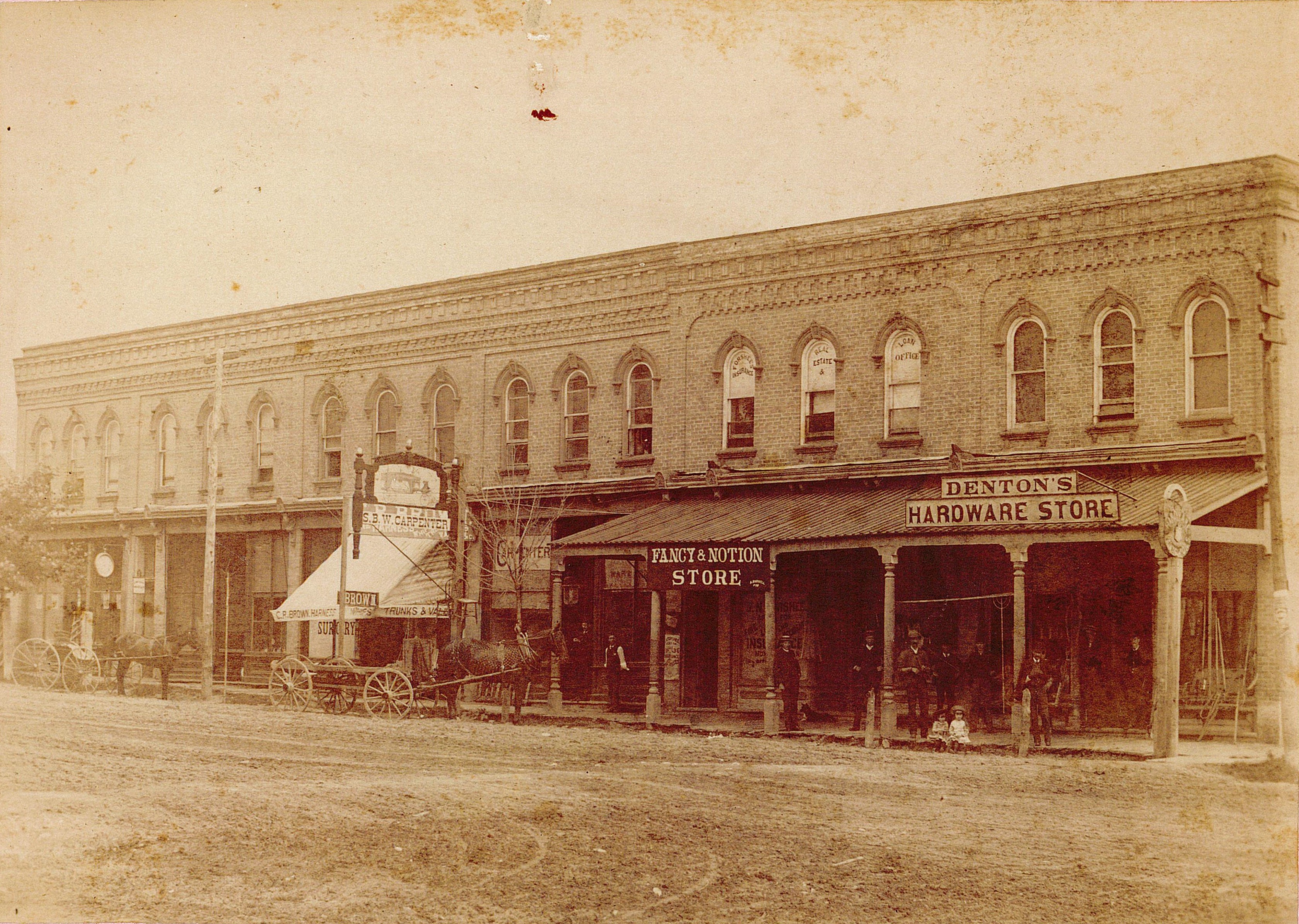
S.B.W. Carpenter in Tillsonburg streetscape [courtest of Annandale N.H.S. & Museum]
By the mid-19th Century, mass production possibilities entered the field of cabinetmaking which took a great deal of work out of cabinetmakers’ hands and put it in the hands of factory owners who produced cabinetry for the masses in endless, easily replaceable quantities. By the turn of the century, the emergence of furniture dealers, such as William Dalrymple and William Z. Watts (1891), and large scale furniture manufacturers, such as D.R. McIntyre Furniture Co. (1905), became more common place in the town. Similarly, as communities grew, the role of the undertaker become a separate business, with the shift of visitations and funerals being held at home to that of a funeral parlour.